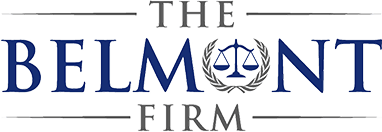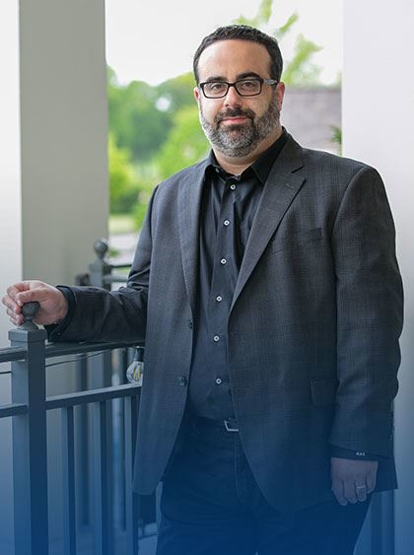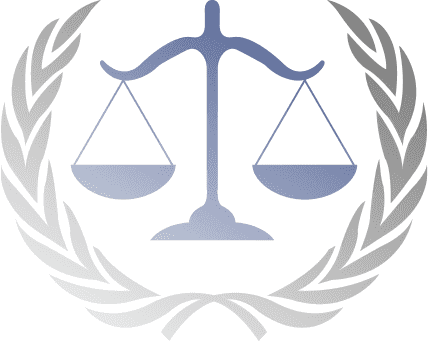
Washington D.C. Chapter 7 Bankruptcy Attorney
Debt Relief Guidance in the Beltway Region
You do not have to live with seemingly insurmountable debt. Chapter 7 bankruptcy can help you escape overwhelming credit card and medical debt and provide you with the relief you need to move forward.
Our Washington D.C. Chapter 7 bankruptcy lawyer is committed to helping you overcome debt and achieve a fresh financial start. At The Belmont Firm, we bring a team approach to each of our cases and will work closely with you to develop a legal strategy tailored to your unique situation. In addition to facilitating the discharge of qualifying debts, we can help you stop foreclosure, repossession, wage garnishments, and other damaging collection actions.
We serve clients in and around the Washington, D.C., area. Schedule a free initial consultation by
contacting our Chapter 7 bankruptcy attorney in Washington D.C. online or calling (202) 875-8445!

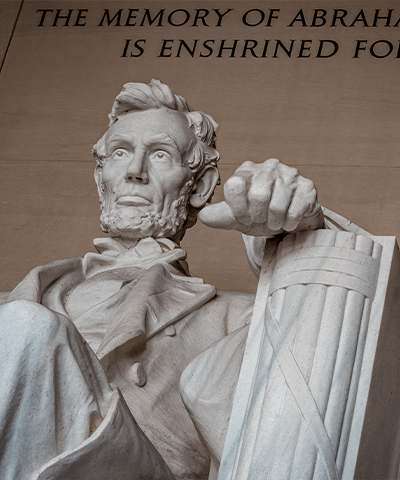
What is Chapter 7 Bankruptcy?
Chapter 7 bankruptcy is intended to provide relief to consumers with little to no means of repaying their debts by allowing a court appointed trustee to sell their nonexempt property to pay their debts. If you have little to no disposable income, you will likely qualify to file for Chapter 7 bankruptcy.
Qualifying for Chapter 7 Bankruptcy
To determine your eligibility, you will need to complete the Means Test. This involves comparing your current income to the average median income in the District of Columbia or your state.
If your current income level is less than the average median, you automatically qualify for Chapter 7. If your income exceeds the average median income, you may still be eligible, but you will need to calculate your monthly level of disposable income. Your disposable income can be determined by subtracting qualifying expenses from your income.
You may need to explore filing for Chapter 13 bankruptcy if you have considerable monthly disposable income. Our Washington D.C. Chapter 7 bankruptcy attorney can evaluate your situation and advise whether you qualify.
How to File Chapter 13 Bankruptcy
Filing for Chapter 13 bankruptcy in Washington D.C. involves several steps. First, the debtor must gather all relevant financial documents, such as tax returns, pay stubs, and a list of all debts owed. They must then complete and file a petition, along with several other required forms, with the bankruptcy court. The debtor must also create a repayment plan, outlining how they will pay off their debts over a three to five-year period. This plan must be approved by the court and the debtor must make regular payments to a trustee who will distribute the funds to creditors.
Additionally, the debtor must attend a meeting of creditors and may need to attend a confirmation hearing if the court has any concerns about the repayment plan. It is recommended to seek the guidance of an experienced bankruptcy attorney throughout this process.
The Chapter 7 Bankruptcy Process
What Is an Automatic Stay?
When you file for Chapter 7 bankruptcy, you will benefit from the “automatic stay,” a court order that halts all collection actions. The automatic stay stops foreclosure, repossessions, wage garnishments, collection lawsuits, and any other imminent or ongoing creditor actions, providing immediate relief to filers. This freeze will typically remain in effect until your bankruptcy case has concluded.
In a Chapter 7 bankruptcy, your nonexempt assets will be “liquidated” to partially repay your debts. While this may sound frightening, liquidation sounds scarier than it is. The process is not meant to deprive you of the things you need to live, and you can use exemptions to protect many types of property from liquidation. Washington D.C. Chapter 7 bankruptcy exemptions include:
- 100% of the equity in your home
- 100% of the value of many types of monetary benefits, retirement accounts, and insurance benefits, including child support, life insurance benefits, workers’ compensation, and unemployment benefits
- Up to $2,575 of equity in a motor vehicle
- Up to $8,625 in the total value of clothing, furniture, appliances, and instruments (up to $425 in value per item
- Up to $400 in the total value of books
- Up to $300 in the total value of “tools of your trade”
- Up to $850 of the value in any “wild card” assets of your choosing (up to $8,075 if you do not exercise the homestead exemption)
We can help you leverage Washington D.C.’s generous exemption schedule and minimize the impact of liquidation. Many Chapter 7 bankruptcy filers lose little to nothing.
Once the liquidation process has been completed, the bankruptcy court will generally permit a discharge of unsecured debts. This means that any outstanding credit card debt, medical debt, personal loans, or unpaid utility bills will be effectively forgiven. Certain other types of debt are not so easily discharged, but we can also help explore your options for eliminating student loan debt.
Our team at The Belmont Firm is ready to help you make the most of your bankruptcy. Our Washington D.C. Chapter 7 bankruptcy lawyer can serve as your guide and advocate throughout each step of the filing process.
Payment plans and same-day appointments are available. Contact us online or call (202) 875-8445 to explore your bankruptcy options today!
Are There Chapter 7 D.C. Bankruptcy Exemptions?
If you are considering filing for Chapter 7, you will be happy to know that there are exemptions. Whether you are filing as an individual or business, filing for Chapter 7 bankruptcy allows you to keep a certain amount of property. Typically, property that is exempt from bankruptcy are items that are essential to work and life.
Examples of exempt property in Chapter 7 are listed below:
- Vehicles (up to a certain value)
- Essential household appliances and furnishings
- Tools which you use for your profession (up to a certain value)
- Essential clothing and jewelry (up to a certain value)
- Public benefits that have accumulated such as welfare, social security, and unemployment
- Compensation that was awarded to you in a personal injury lawsuit
Talk to a skillful Washington, D.C. Chapter 7 lawyer at The Belmont Firm during a free initial consultation. We can help you get a better understanding of what your exemptions will be if you choose to file.
Frequency of Chapter 7 Bankruptcy Filings
In Washington, D.C., individuals can technically file for Chapter 7 bankruptcy more than once, but the timing between filings is a critical factor. The U.S. Bankruptcy Code imposes limitations on how frequently an individual can receive a Chapter 7 discharge.
Chapter 7 Waiting Periods
Eight-Year Rule: If you have received a Chapter 7 discharge in a previous case, you must wait at least eight years from the date of the prior filing before becoming eligible for another Chapter 7 discharge. This waiting period is calculated from the filing date of the previous case.
Six-Year Rule: If you have received a Chapter 13 discharge, which involves a repayment plan, you must wait at least six years from the date of the prior Chapter 13 filing before filing for Chapter 7.
Considerations for Multiple Filings
While the Bankruptcy Code establishes waiting periods between Chapter 7 filings, it's essential to note that filing for bankruptcy too frequently can impact your ability to obtain a discharge. Additionally, the circumstances surrounding each filing are crucial, and changes in the law or personal circumstances may influence your eligibility.
Consulting a Bankruptcy Attorney in Washington, D.C.
Given the intricacies of bankruptcy law and the unique circumstances of each case, seeking the guidance of an experienced bankruptcy attorney is crucial. A knowledgeable attorney can assess your financial situation, advise you on the best course of action, and help navigate the complexities of multiple Chapter 7 filings.
What Are The Benefits of Filing Chapter 7?
If you have been struggling against serious debt, Chapter 7 is an excellent solution. Still not sure about it? Below, we cover some of the advantages of filing for bankruptcy.
Why file for Chapter 7 bankruptcy?
- There is no limit to how much debt you can have in order to file, whereas Chapter 13 has debt limits which deem you ineligible to file
- Certain debts will be wiped out, which allows you to gain a “fresh start” financially
- After your debt is discharged, you are not obligated to repay anything else – your debt is gone
- Discharge of your debts may take as little as 3 months to complete
- If you acquire property after filing for Chapter 7, it is not included in the liquidation process
If you are filing Chapter 7 bankruptcy in Washington, D.C. do not hesitate to speak with attorneys with a thorough understanding of the law. At The Belmont Firm, we have years of experience and we are prepared to guide you through the filing process or help you understand what options may be better suited to resolve your debt.
Understanding Chapter 7 Bankruptcy in Washington, D.C.
Filing for Chapter 7 bankruptcy in Washington, D.C. can be a daunting process, especially for residents facing financial challenges in a city known for its high cost of living. Local resources, such as the D.C. Department of Insurance, Securities and Banking, can provide valuable information on financial literacy and debt management, helping you navigate your options. Understanding the local economic landscape is crucial, as many residents struggle with student loans, medical bills, and housing costs that can quickly spiral out of control.
In the heart of the nation’s capital, many individuals and families find themselves overwhelmed by debt, often due to unexpected life events or economic downturns. The stress of financial instability can lead to sleepless nights and anxiety, making it essential to seek help. At The Belmont Firm, we recognize the unique challenges faced by Washingtonians, from the impact of government shutdowns to the rising costs of living. Our team can help you understand how Chapter 7 bankruptcy can pursue relief and a fresh start.
We understand that every financial situation is different, and we are committed to helping you explore your options, including the exemptions available to protect your essential assets. Whether you live in neighborhoods like Georgetown, Capitol Hill, or Anacostia, we can guide you through the Chapter 7 process with compassion and understanding.
How Our Chapter 7 Bankruptcy Attorney Can Help You
Navigating the complexities of Chapter 7 bankruptcy requires legal knowledge and a thorough understanding of the Washington D.C. bankruptcy court system. Working with a dedicated Washington D.C. Chapter 7 bankruptcy lawyer ensures that you fully understand your rights and responsibilities throughout the process. Here’s how we can assist you:
- Determine Eligibility and Prepare Your Case: One of the first things we’ll do is conduct a detailed analysis of your financial situation. We'll help you determine if Chapter 7 is the best option for you or if Chapter 13 or another alternative is more appropriate. We will guide you through the means test to confirm eligibility, review all your assets, and ensure you understand what exemptions apply to protect them.
- Handle All Filings and Documentation: Bankruptcy law involves a significant amount of paperwork, and errors in the petition can cause delays or even denial of your bankruptcy case. We’ll prepare all the necessary documentation, ensuring accuracy and timeliness. We’ll file your petition with the court and represent you in all communications with the bankruptcy trustee and creditors.
- Protect Your Assets and Stop Creditor Harassment: Once your case is filed, we’ll ensure the automatic stay goes into effect, stopping all creditor collection efforts. This includes wage garnishments, foreclosure proceedings, and repossession actions. We’ll work to maximize the use of exemptions to protect as much of your property as possible.
- Represent You at the 341 Meeting: We will accompany you to the meeting of creditors and guide you through the process. If any issues arise or creditors contest the discharge of certain debts, we’ll be there to advocate on your behalf.
- Provide Guidance After Discharge: Even after your debts are discharged, our role doesn’t end. We provide guidance on how to rebuild your financial life, including tips on budgeting, improving credit scores, and avoiding future financial pitfalls.
Get a free consultation with our Washington, D.C. Chapter 7 Lawyer at The Belmont Firm. Call (202) 875-8445.
Why Choose US?
Trusted Guidance That Exceeds Expectations-
Payment Plans Available
-
Free Consultations
-
Serving Washington DC Areas
-
Client Centered
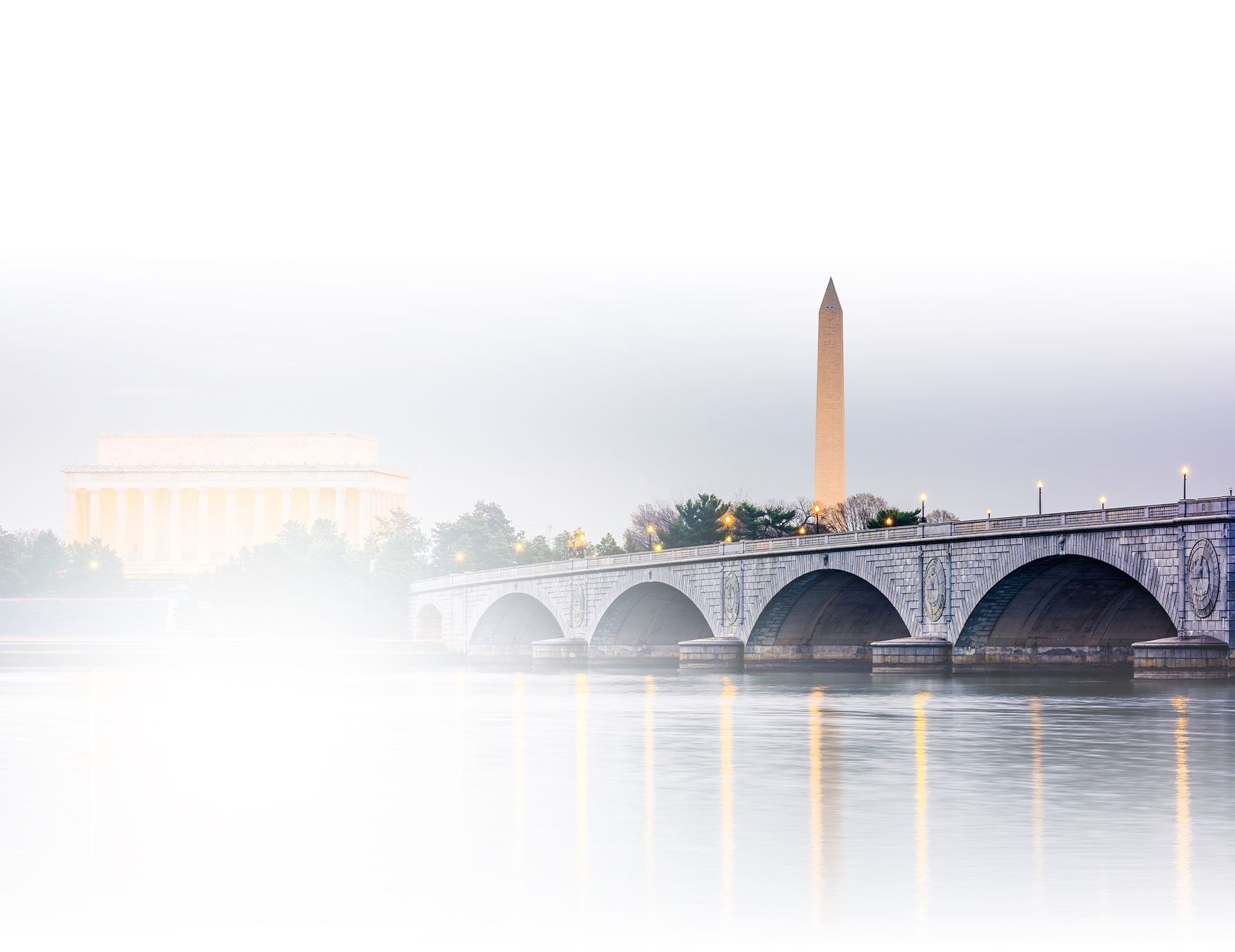
We're Ready to Help You!
Contact Us Today for Your Free Initial Consultation
